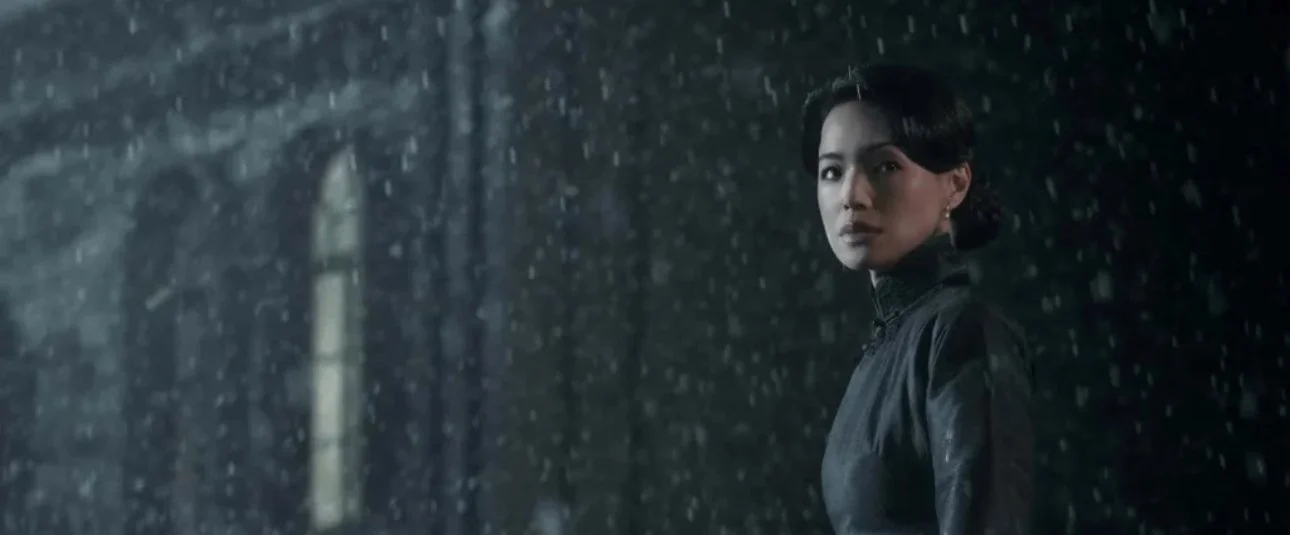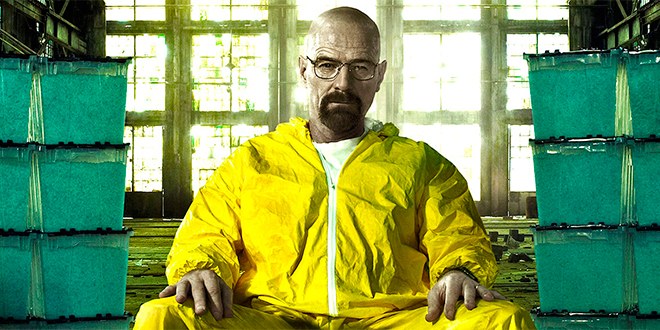Last year was the year when TV, in terms of sheer quality of artistry, caught up to American filmmaking. I can't see it any other way. 2017 was the year, when comparing my movie ten-best list and my TV ten-best list, I came to the conclusion that the television I was watching was vastly superior. Don't believe me? Well, how else can you not make the case that "Twin Peaks: The Return," "The Leftovers," "Handmaid's Tale," "The Deuce," "Big Little Lies," "Mindhunter," "Better Call Saul," "GLOW," "Better Things," and "Master of None" were top-tier works of art?
It's not like we didn't see this blurring of quality lines coming, the alarm bell was ringing red for quite some time now. TV has only been inching up the ladder ever since "The Wire" and "The Sopranos" changed the landscape back in the late '90s. As recently as 2016 I had said ESPN and director Ezra Edelman's groundbreaking eight-hour documentary "O.J: Made In America" was the best 'movie' of 2016. Furthermore, at the time something was happening that I was closely pondering with an ever-watchful eye. Fact of the matter was that the days of Hollywood making mid-budget studio dramas was all but gone, those kind of statements had all but migrated to television You now either had big-budgeted blockbusters or small-scaled, independently financed films that, for the most part, needed to premiere at Sundance to even have a fighting chance at staying alive during the regular movie calendar year. There was no in between anymore and, suffice to say, it's only gotten worse ever since.
These days, either you offer audiences a blockbuster derived from a well-known property, such as DC and Marvel comic books, or the investment is a sub $10-million indie. There is no in-between anymore, no sweet spot of a $30-million to $60-million production available to be greenlit. In that regard, American mainstream cinema can be qualified as all but extinct. Our nostalgia-obsessed culture has taken over in the form of what equates top cinematic comfort food. Making films with brand names tagged into them has become the way to go for movies.
Now the top box-office grossers are mostly made up of sequels, superhero movies, reboots, prequels, or animation. You'd be hard-pressed to find more than a handful of movies in the year-end top 25 at the box-office that doesn't have any of those check-marked. Compare the current situation to 20 years ago and the difference is alarming. In 1997 26 of the 30 most successful films at the Box-office were original films. Only four sequels made it, no animated movies, no superhero movies, and just a single remake. Now, studio filmmaking has been monopolized at the Box-office by two studios. Disney is always mentioned but people have failed to recognize what Universal has done with its franchises (Jurassic World, Fast and the Furious, Despicable Me).
The culture of moveigoing has also changed. The most frequent moviegoers, by age group, are 25-39 years of age (25% of total moviegoers), Hispanics purchased 25% of the tickets sold last year (the most frequent moviegoing ethnicity). Hollywood will adhere to whatever the stats say and will work accordingly to make the most money they can.
Is this a dumbing down of the masses? I don't think so, it's more an outright extinction of the old-school cinematic experience and a sucker punch to cultural perseverance. People now go to the movies for a different kind of experience. The culture has drastically shifted to television.
“It’s true at every studio,” Dan Jinks, producer of “American Beauty” and “Big Fish,” told GQ in 2010. “Everyone has cut back on not just ‘Oscar-worthy’ movies, but on dramas, period. Caution has made them pull away. It’s infected the entire business.”
As "Mad Men" creator Matthew Weiner put it, “Something happened that nobody can make a movie between $500,000 and $80 million. That can’t be possible.” mega-producer Jerry Bruckheimer elaborated further by saying it was also a foreign investing problem “It's hard to make a $40 million movie”, “Because usually those movies don't travel overseas well. We've been trying to get a sports movie made, which would cost $30-40 million, and Disney said we can't get foreign traction for it. It might play well in America, but it's not going to play well elsewhere in the world.
Soderbergh saw the writing on the wall, telling an audience at the San Francisco International Film Festival, “The meetings have gotten pretty weird. There are fewer and fewer executives who are in the business because they love movies. There are fewer and fewer executives that know movies… You’ve got people who don’t know movies and don’t watch movies for pleasure deciding what movie you’re going to be allowed to make.”
So what can talented filmmakers, whose names aren't Tarantino, Nolan and Scorsese, do to continue working and exploring new avenues without having their art compromised? How about migrate to television, which has turned into a better-suited setting for their artistic needs.
“I don’t think there’s a lot of deep philosophical debate,” Steven Soderbergh told The Daily Beast “There are more possibilities in TV, in terms of storytelling, than there are in the movies… Movies don’t have time to find audiences anymore. With TV, it’s nice to feel like you’re part of a conversation that’s going on — as opposed to the movie business, which is only judged by one prism these days: economic.
And so, filmmakers have been following up on Soderbergh's call to arms. In the last 5 years we've seen Soderbergh himself, David Lynch, David Fincher, Martin Scorsese, The Coens, Jane Campion, Cary Fukunaga, Woody Allen, Baz Lhurmann, Spike Lee and hundreds more have made the jump to the small-screen. Why? Because the middle-ground to make the kind of films they used to make on the big-screen fell out. You know, the kind of projects that were more interested in character-oriented stuff than big explosive effects. And for that, we should be grateful TV picked up the slack.
And yet, there is a negative to TV's takeover; the adult-driven 2 hour movie is an art form. You can herald the artistic merits of serialized television all you want, but there just is something exciting about watching a 2 hour drama and not having the thought of setting aside some time to binge-watch it. Also, many shows that start off strong but end up losing steam in their succeeding seasons, that's just part of the game.
"The sad thing," says HBO programming chief Michael Lombardo, "is that a world has closed to a group of serious storytellers—and there are some stories that should be told in a two-hour format. Our success is a sort of silver lining in a story that's economically driven by what studios are doing to try to survive in a complicated international market. But the losers ultimately are people who are looking to appreciate serious work in film."









